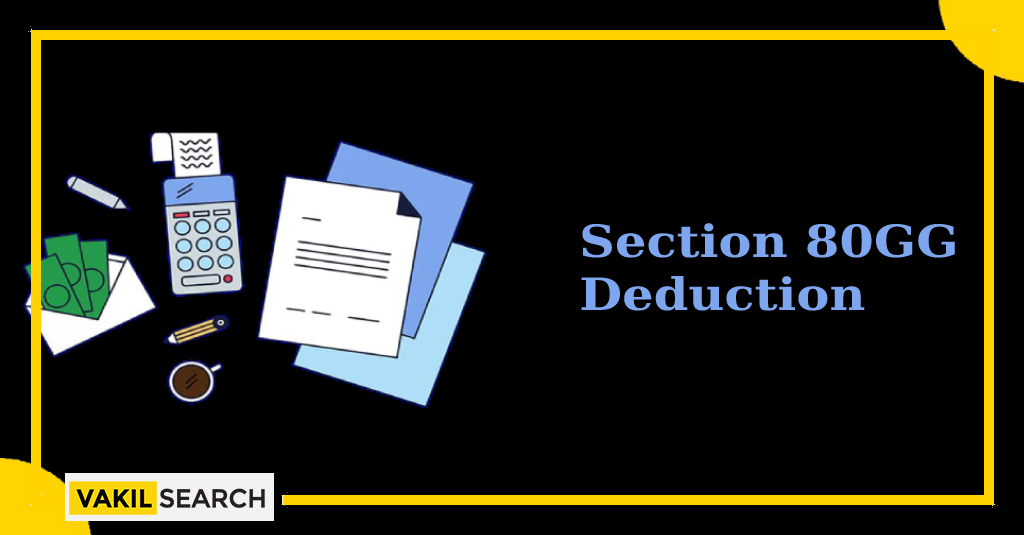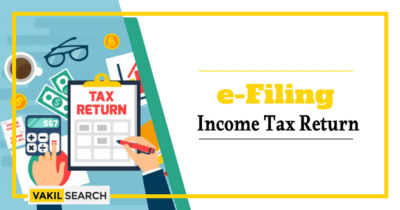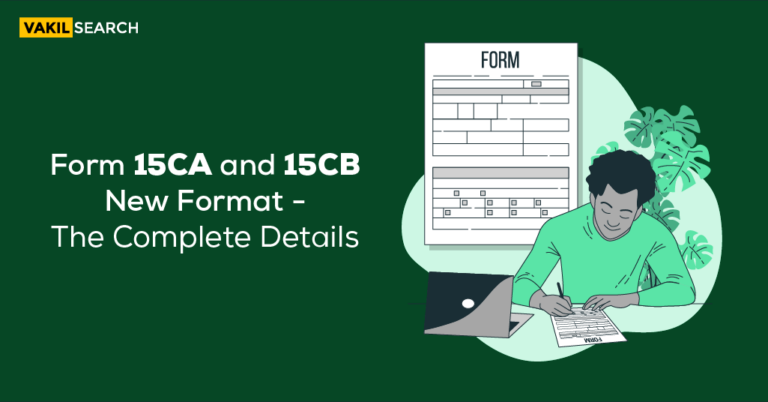Section 80GG Income Tax Act allows individuals who do not receive House Rent Allowance (HRA) from their employer to claim a deduction for the rent paid for their accommodation.
What is Section 80GG in Income Tax?
Section 80GG is a special provision under Income Tax Act, 1961 which provides tax reprieve to those who do not avail House Rent Allowance (HRA) from their employer to claim a deduction for the rent paid for their accommodation. This deduction is available under certain conditions and subject to certain limits.
Section 80GG is a provision in the Indian Income Tax Act that allows taxpayers to claim a deduction for rent paid when they are not receiving House Rent Allowance (HRA) from their employer. Under this section, an individual can claim a deduction for rent paid up to a maximum of Rs. 60,000 per year. However, to be eligible for this deduction, the taxpayer must not own a residential property either by themselves or jointly with their spouse or child. The amount of deduction that can be claimed under this section is subject to various conditions, including the individual’s total income and the percentage of rent paid as a percentage of their total income.
80GG is a deduction under chapter VI-A of Income Tax Act 1961.It has been created to support those who pay rent for a place to stay even though they do not receive a house rent allowance. so, even if they do not receive a housing rent allowance, a person can still deduct their rent payments.
Who is Eligible to Claim Tax Deductions under Section 80GG?
Individuals who do not receive HRA from their employer are eligible to claim tax deductions under 80GG. However, the deduction is subject to certain conditions and limits.
Deductions under 80GG
Section 80GG Income Tax Act provides tax benefits to individuals who do not receive House Rent Allowance (HRA) from their employer but pay rent for their accommodation.
Here’s how property owners can claim tax deductions under 80GG:
- Eligibility: To claim tax deductions under 80GG, you must be a self-employed person or an employee who does not receive HRA from their employer.
- Calculation of Deduction: The deduction under Section 80GG is calculated as the lower of the following amounts:
- Rent paid minus 10% of total income
- Rs. 5,000 per month
- 25% of total income
- Filing Form 10BA: To claim the deduction under 80GG, you must fill out Form 10BA and submit it with your income tax return. The form requires you to provide details of the property for which you are paying rent, such as the address and the name and address of the landlord.
- Exceptions: You need to be aware of a few exceptions under 80GG. You cannot claim the deduction if you or your spouse, minor child, or HUF owns a residential property in the city or any other city where you work. Additionally, you cannot claim the deduction if you receive any benefits related to accommodation from your employer.
Precision meets planning – Trust our Income Tax Calculator for meticulous tax projections.
Section 80GG Deduction in Respect Of Rent Paid
80GG of the Income Tax Act, 1961, allows individuals who do not receive any House Rent Allowance (HRA) from their employer but pay rent for their accommodation to claim tax deductions on the amount paid. This section allows for a deduction of up to INR 60,000 per annum towards rent paid, subject to certain restrictions.
Individuals claiming deduction under Section 80GG must ensure that they do not own any residential property in the city where they are claiming rent paid as a deduction. Additionally, the deduction amount cannot exceed 25% of the individual’s total income for the year. It is important to note that the amount of deduction claimed under Section 80GG cannot be claimed under any other provision of the Income Tax Act.
To claim the deduction, individuals must submit a declaration in Form 10BA, specifying the details of the rental accommodation, the amount of rent paid, and the name and address of the landlord. This declaration must be submitted with the individual’s income tax return filing.
In summary, 80GG provides a tax benefit to individuals who do not receive HRA from their employer but incur expenditure on rent for their accommodation. However, it is essential to comply with the conditions specified and provide proper documentation to claim the deduction. Consulting a tax professional can help individuals understand this process better and avail the deduction appropriately.
Exceptions Under Section 80GG
- When you own a house in the location where you are employed or operate a business, you cannot claim the house rent deduction.
- The deduction for house rent cannot be claimed if you claim benefits for a house owned in another location as a Self-Occupied Property. It will be considered a rental if you live in one city and own a house in another city/town.
Living with your parents is an interesting way to benefit from Section 80GG. You could enter into a rental agreement with your parents and pay a specific amount as rent – at least ₹60,000. However, it is important to note that your parents will need to report that amount as income on their income tax returns.
With the real estate rates nowadays, it is quite impossible that the least amount would be anything other than the limit of ₹60,000 allowed under Section 80GG. A rent payment of less than ₹5K per month indicates that you reside in a smaller town and your income is proportionately low, thus exempting you from paying income tax. Furthermore, most companies now include House Rent Allowance in their salaries, which automatically excludes you from being able to claim Section 80GG benefits.
Maximum Deduction Limit Under 80GG of Income Tax Act
Section 80GG of the Income Tax Act allows you to claim a tax deduction of up to ₹60,000 per year if you haven’t received a House Rent Allowance (HRA) in a financial year.
The deduction is determined by the least of the following amounts:
- ₹5,000 per month
- Total rent paid for the year minus 10% of your adjusted total income
- 25% of your total adjusted annual income
For example, if your annual income is ₹8 lakh and you pay ₹11,000 per month in rent, the applicable tax exemption amounts would be ₹5,000 per month, ₹52,000 (total rent paid minus 10% of adjusted total income), and ₹2,00,000 (25% of total adjusted annual income). The lowest amount among these, which is ₹52,000, will be the applicable tax deduction under Section 80GG.
Advantages of Section 80GG
- The main benefit of Section 80GG is that it allows individuals who do not receive HRA but pay rent for their accommodations to deduct their rent from their income. It is particularly beneficial to those with low incomes or at the beginning of their careers. As a result, tax liabilities are reduced and more money is saved.
- Tax rebates are available to both salaried and self-employed individuals.
Disadvantages of Section 80GG
- Section 80GG has the disadvantage of limiting the maximum deduction to ₹2,000 per month or 25% of the total income, whichever is less. For individuals with high incomes or those who pay high rent, this section may provide a relatively small tax benefit.
- Another disadvantage of 80GG is that the rent paid must exceed 10% of the total income. In other words, individuals who pay a low rent or have a high income may not be eligible for this tax deduction.
- Tax rebates under other sections cannot be claimed by individuals who claim a deduction under Section 80GG.
Eligibility for claiming deduction under Section 80GG
To claim a deduction under Section 80GG of the Income Tax Act, you must meet the following eligibility criteria:
- You must be an individual taxpayer. This deduction is not available to HUFs or other entities.
- You must not receive HRA (House Rent Allowance) from your employer.
- You or your spouse or minor child should not own a residential property in the location where you currently reside, work, or conduct your business.
- You should not own any residential property in any other location, which is self-occupied or deemed to be self-occupied. This means you cannot claim this deduction if you own any other residential property, even if you don’t receive any income from it.
- You should be paying rent for a residential property that you occupy for your own residence. It should not be owned by you or your spouse/minor child or any member of your HUF.
- You must provide a declaration in Form 10BA stating that you meet the above conditions and that you have incurred the expenses towards rent.
How to claim deduction under Section 80GG?
To claim a deduction under Section 80GG, you need to follow these steps:
- Obtain Form 10BA from the Income Tax Department’s website or your employer.
- Fill out the form with your personal details, such as your name, PAN, and address, as well as details about the rented property, such as the landlord’s name and address, monthly rent, and period of tenancy.
- Attach rent receipts or other documents as proof of rent payment.
- Calculate the deduction amount based on the three criteria mentioned in the section and enter the amount in the appropriate field on the form.
- Submit the completed form along with other supporting documents while filing your income tax return.
- Keep all the original rent receipts and other documents safely for at least six years, as they may be required for scrutiny or audit by the Income Tax Department.
How are Deductions Under Section 80GG Calculated?
Tax deductions under Section 80GG of the Income Tax Act are based on Tax Rule 2A The non-taxable income is calculated as follows:
- ₹5000 per month or ₹60000 a year
- Yearly rent amount minus 10% of adjusted total income
- 25% of adjusted total income for a year
After calculation, only the least amount is considered for Section 80GG deduction
Examples of tax deductions for two individuals with different income and rent payments are shown in the table below:
| Factors | Individual A | Individual B |
| Adjusted Total Income (ATI) | ₹200000 | ₹180000 |
| Total Yearly Rent Payable | ₹80000 | ₹60000 |
| Deductions under Section 80GG of the Income Tax Act | ||
| Yearly Rent – 10% of ATI | ₹60000 | ₹42000 |
| 25% of ATI | ₹50000 | ₹45000 |
| ₹5000 per month | ₹60000 | ₹60000 |
| Deductions Applicable | ₹50000 | ₹42000 |
Individual A is eligible for a higher tax deduction under Section 80GG since their adjusted total income is higher than Individual B’s The tax discount of 25% of the ATI is applicable for Individual A since it is lower than the other two calculations However, in Individual B’s case, the yearly rent minus 10% of ATI provides a lower quantum than the other calculations Thus, it is the applicable tax deduction for Individual B.
Filing Form 10BA
If you want to receive Section 80GG tax benefits, you must complete Form 10BA. The following details must be filled in on Form 10BA before it can be submitted:
- Full address with postal code
- Name and PAN of the assessee
- Mode of payment
- Tenure of residency in months
- Rental amount
- Address and name of the property owner
- Declaration stating that the assessee, his/her spouse or minor child do not own any other residential property.
PAN number of the rented property’s owner is mandatory if the amount of rent exceeds ₹1 lakh in any given financial year.
Documents Required
- Form 10BA and additional information are provided.
- Assessee’s name, PAN, and full address are required.
- Tenure, amount, and form of payment are important considerations.
- Declaration stating no other dwelling property is owned by the assessee, spouse/minor child, or HUF.
- Landlord’s name and address are needed.
- Landlord’s PAN is required if rent exceeds ₹1 lakh.
How Can Property Owners Claim Tax Deductions under Section 80GG?
To fill out Form 10BA correctly, you need to provide the following information:
- Name and address of the landlord.
- Address of the rented property.
- Rent paid for the property.
- Duration for which the property has been rented.
- A declaration that you do not own any other residential property in the same city where you live or work.
It is important to note that the information provided in Form 10BA should be accurate and complete to claim the tax deduction under Section 80GG.
Section 80GG FAQs
If I am claiming HRA, then can I claim a deduction under section 80GG also?
No, you cannot claim both HRA and deduction under Section 80GG simultaneously. Section 80GG is applicable only to those individuals who do not receive HRA from their employer.
What is Form 10BA?
Form 10BA is a declaration form that needs to be filled and submitted by the assessee along with the income tax return to claim a deduction under Section 80GG.
Who salaried individuals can claim this deduction?
Any salaried individual who is not receiving HRA from his/her employer can claim this deduction under Section 80GG.
What is the limit for 80GG?
The maximum deduction that can be claimed under Section 80GG is up to ₹60,000 per annum.
Can we claim HRA and 80GG both?
No, an individual cannot claim both HRA and 80GG deductions simultaneously. Section 80GG is applicable only to those individuals who do not receive HRA from their employer.
Who is eligible to take advantage of this Tax break?
Individuals who do not receive HRA from their employer and pay rent for their accommodation are eligible to claim tax benefits under 80GG.
Can I claim benefits under 80GG if the property is in the name of my Father?
No, you cannot claim benefits under Section 80GG if the property is in the name of your Father. However, if you pay your Father to rent the property, he can claim the deduction under Section-80GG.
Can I pay rent to my parents and claim 80GG?
Yes, you can pay rent to your parents and claim the benefits under Section-80GG, provided they are not the property owners.
What is the total adjusted income under 80GG?
Total adjusted income under Section 80GG is the total income after deducting all the exemptions and deductions available under the Income Tax Act, except the deduction under 80GG.
Can homeowners claim deductions under Section-80GG?
No, homeowners cannot claim deductions under 80GG, as this section applies only to individuals who do not own a residential property in the city where they reside or work.
Can self-employed individuals claim a deduction under 80GG?
Yes, self-employed individuals can claim the deduction under Section 80GG if they pay rent for their accommodation and do not receive HRA from their employer.
I have a property but live in a rented house in a different city. Can I claim deductions under 80GG?
Yes, you can claim deductions under 80GG if you pay rent for your accommodation and do not own a residential property in the city where you reside or work.










